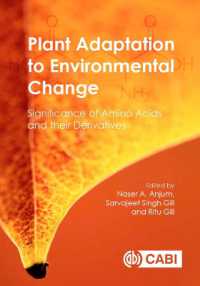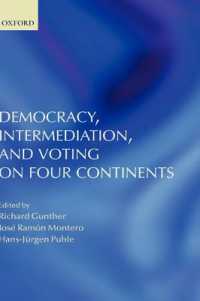Full Description
In South African higher education, the images of dysfunction are everywhere. Student protests. Violence. Police presence. Rubber or real bullets. Class disruptions. Burning tyres. Damaged buildings. Injury and sometimes death. Reports of wholesale corruption. Year after year, often in the same set of universities; the problem of routine instability seems insoluble.
The financial, academic and reputational costs of ongoing dysfunction are high, especially for those universities caught-up in the never-ending struggle to overcome apartheid legacies. Any number of explanations have been ventured, including a lack of resources, shortage of capacity, rural location, corrupt officials, and endemic conflict. Corrupted takes a deeper look at dysfunction in an attempt to unravel the root causes in a sample of South African universities.
At the heart of the problem lies the vexed issue of resources or, more pertinently, the relationship between resources and power: who gets what, and why? Whatever else it aspires to be—commonly, a place of teaching, learning, research and public duty—a university in an impoverished community is also a rich concentration of resources around which corrupt staff, students and those outside of campus all vie for access.
Taking a political economic approach, Jonathan Jansen describes the daily struggle for institutional resources and offers accessible, sensible insights. He argues that the problem won't be solved through investments in 'capacity building' alone because the combination of institutional capacity and institutional integrity contributes to serial instability in universities. Rather, durable solutions would include the depoliticisation of university councils and appointments of academics with integrity and capacity to manage and lead these fragile institutions.
This groundbreaking and long overdue study will offer a promising way forward for universities to better serve their communities and the country more broadly.








